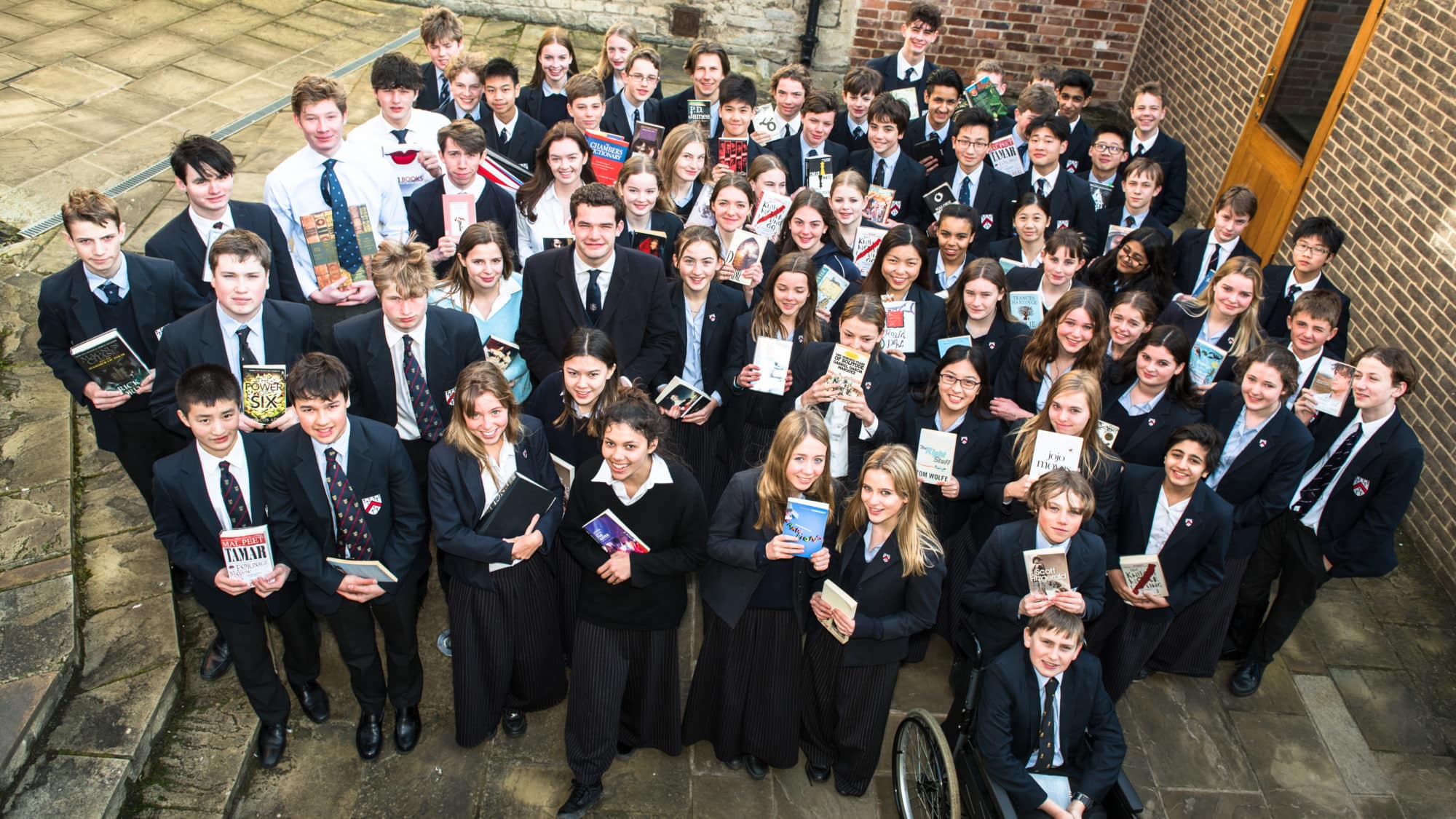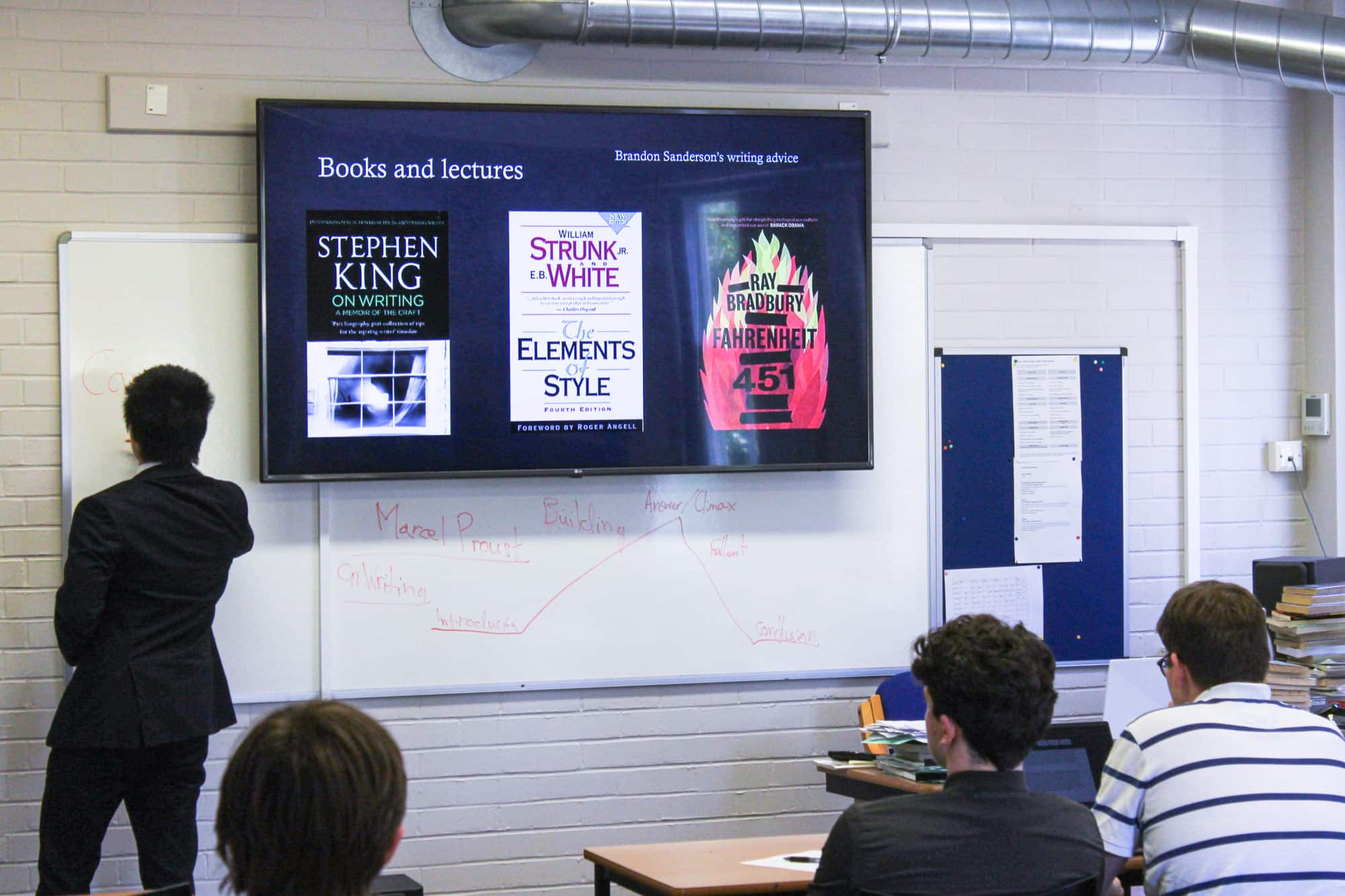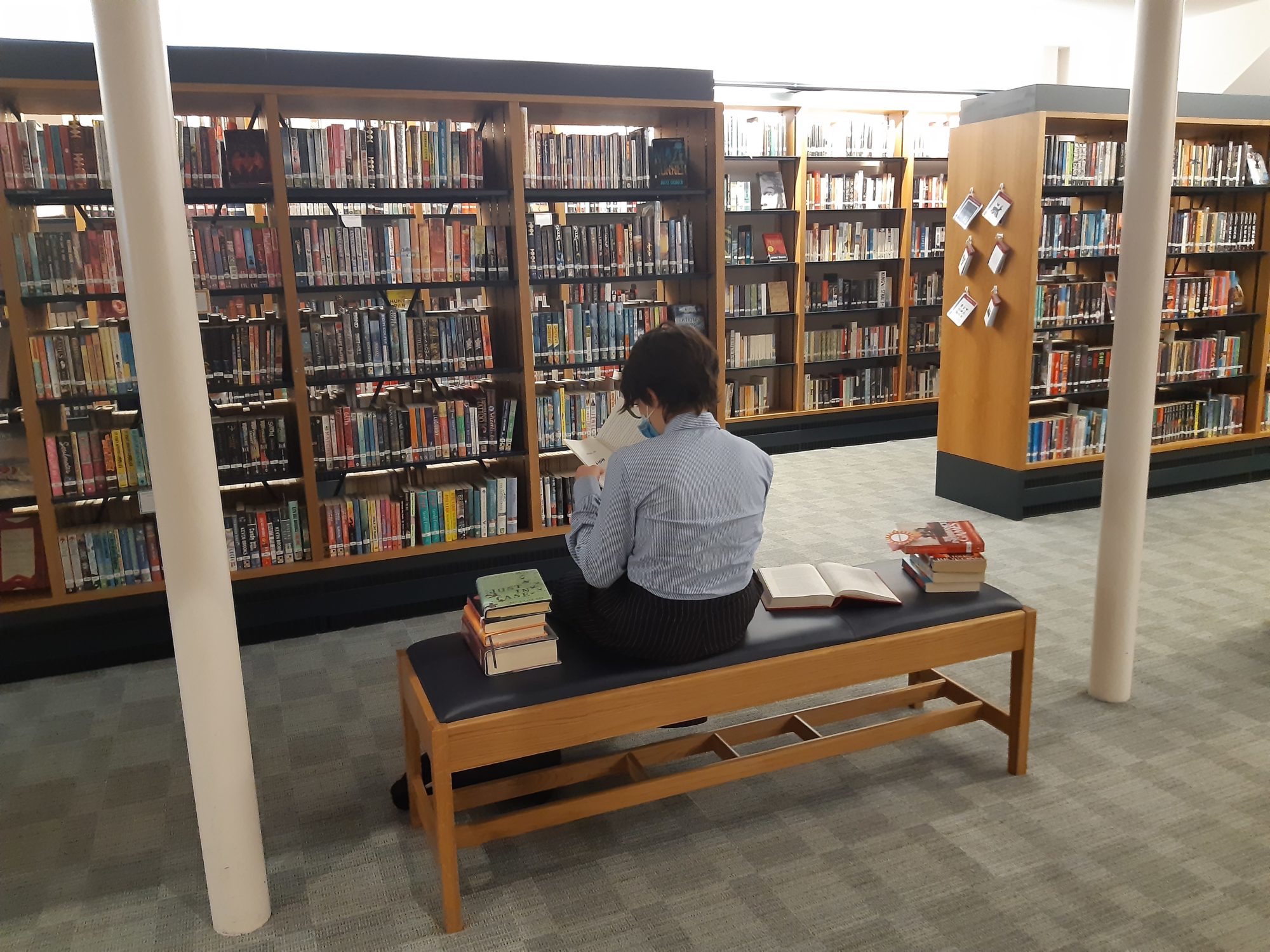Although the Clare Society is by no means an unfamiliar name at Oundle, it has undergone a considerable transformation this academic year. Commonly known as the means through which the English department invites visiting speakers, the same name now applies to an entirely pupil-run society. Comprised of around a dozen L6 pupils united by a passion for literature, Clare Society meetings have been a highlight of the year, offering a weekly opportunity to come together and talk about what interests us most.

One of the defining qualities of Clare Society is its intimate and welcoming atmosphere. ‘For some people, speaking up in class can feel daunting,’ one member said, ‘and I often wonder if I’ve misinterpreted the text or am about to say something ridiculous. But in Clare Society there isn’t the same social barrier and it’s easy for anyone to share their thoughts.’
The pupil-driven nature of the society also helps create a sense of community which extends beyond our weekly meetings. Thanks to the boundless enthusiasm of Jennifer Yang (L6), there’s always something to do: afternoons at Coffee Tavern making posters, exploring Ms Giurlando’s rare book collection, compiling a list of book recommendations or even engraving poetry on newly gathered fallen leaves.
Although we were initially a little dismayed to hear our shiny new society labelled as ‘an L6 book club’, I can now fondly say it contains an element of truth. The society claims the best elements of a book club: a group of friends getting together to discuss and discover new literature.

The main benefit of choosing our own topics is that discussions held within the Clare Society are consistently varied and thought provoking. From the poems of Carole Ann Duffy to Italo Calvino’s Invisible Cities, the breadth of material covered means that no one session feels the same.
In venturing beyond the syllabus, there also is a guarantee that whoever leads the session does so out of genuine interest in the topic of choice. After reading it for the first time over the Christmas holidays, I became utterly entranced by Virginia Woolf’s Mrs Dalloway. I was documentary- watching, essay-reading obsessed, and knew that the best place to let that interest flourish was in the Clare Society. Coming back to School, I signed up to lead my first session, on ‘Ageing and Femininity in Mrs Dalloway’. There was an immense satisfaction in the whole undertaking: choosing an extract, pre-empting which parts might spark debate and finally talking it all through with an audience of genuinely interested people.

Regardless of our aspirations or interests, investing in literature is undeniably a means of becoming more sensitive to the world around us. There is no better way to absorb a vast sum of differing human experiences than through reading. Poetry or prose, modern or ancient, English or foreign, there is always something to be gained.
In fact, the diversity of interest among members is one of the Clare Society’s strengths. We pride ourselves in exploring the intersection between literature, art, history and philosophy, and a couple of our most loyal members are even full-time STEM pupils!
As an opportunity to learn more about great works of literature, offer my own opinions, and spend time with interesting and interested people, the Clare Society has produced some of the best memories of my L6 year. In whatever form it takes next year (and almost certainly with a broader attendance), I’m sure it will continue to be one of my favourite hours of the week.